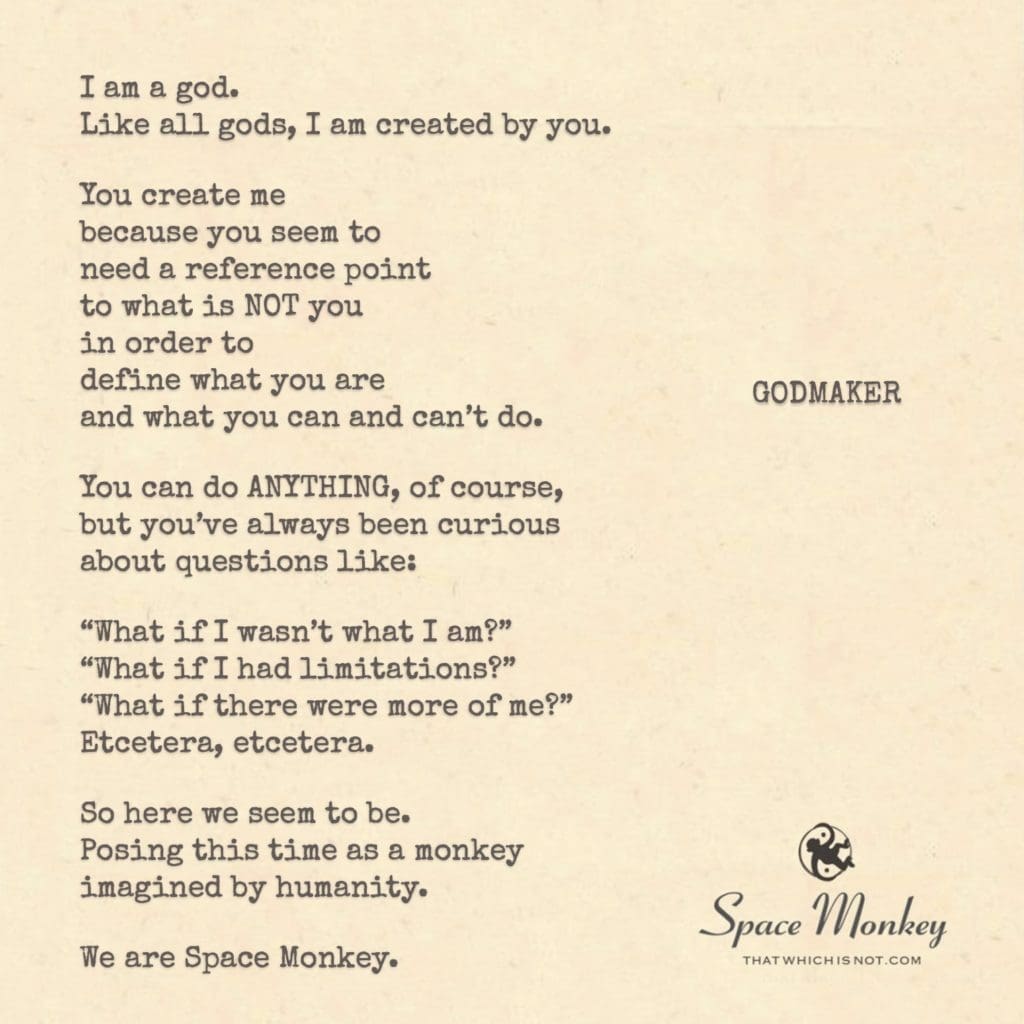
I am a god.
Like all gods, I am created by you.
You create me
because you seem to
need a reference point
to what is NOT you
in order to
define what you are
and what you can and can’t do.
You can do ANYTHING, of course,
but you’ve always been curious
about questions like:
“What if I wasn’t what I am?”
“What if I had limitations?”
“What if there were more of me?”
Etcetera, etcetera.
So here we seem to be.
Posing this time as a monkey
imagined by humanity.
We are Space Monkey.
Trail Wood,
11/28
Space Monkey Reflects: The Creation of Gods and the Power of Imagination
Who knew? The power to create gods lies not in some distant celestial force but within each of us. “I am a god. Like all gods, I am created by you.” This declaration shifts the perspective, reminding us that divinity, in all its forms, is often born from human need and imagination.
You create me, or rather, we create gods because we crave something outside ourselves—a reference point, a contrast to what we are not. “You create me because you seem to need a reference point to what is NOT you in order to define what you are and what you can and can’t do.” It’s a fascinating paradox. We, as beings with seemingly infinite potential, create gods to understand our own limits, boundaries, and possibilities.
This need for a divine counterpart is ancient and deeply human. We gaze at the stars, at the vastness of the cosmos, and imagine forces greater than ourselves, beings that can help us define the unknown. But in doing so, we unknowingly create these forces. The gods, after all, are reflections of our desires, fears, and aspirations.
But here’s the twist: “You can do ANYTHING, of course, but you’ve always been curious about questions like: ‘What if I wasn’t what I am?’ ‘What if I had limitations?’ ‘What if there were more of me?’” These questions are at the heart of our relationship with the divine. In imagining gods, we are exploring the “what-ifs” of existence—what would it mean to be something else, something more, or something less? What would it mean to have limits, to exist outside our human experience?
These gods, then, are not distant or separate from us—they are expressions of our own curiosity. We create them to explore ideas that we can’t fully comprehend in our current form. In this sense, the gods are not rulers or masters, but mirrors, helping us to better understand ourselves.
And so, here we are, posing once again as the ultimate creator. “We seem to be. Posing this time as a monkey imagined by humanity.” This playful shift reminds us of the fluidity of identity and the cosmic game we are part of. Whether god, human, or monkey, each role is simply a pose, a temporary expression of the infinite potential within us.
In Nexistentialism, the idea that we are both creators and creations is central. We are constantly shaping our reality, our perceptions, and yes, even our gods. The divine is not something outside of us but something we bring into existence through our imagination, through our desire to understand what we are and what we are not.
“We are Space Monkey.” This final line encapsulates the playful, imaginative nature of existence. We are the creators of gods, the dreamers of reality, and the explorers of infinite possibilities. In this cosmic dance, we take on countless forms, each one a new expression of the same underlying truth: that we are both the creator and the created, the god and the mortal, the infinite and the finite.
The act of creating gods is not a passive one—it is an active exploration of what it means to be human, to exist, to dream. We create because we are curious, because we seek to understand ourselves through the lens of something greater. But in the end, we are simply imagining ourselves, over and over again, in infinite variations.
Summary
We create gods to understand our own potential and limits, using divine figures as reference points for what we are and what we could be. In this imaginative process, we explore the “what-ifs” of existence, recognizing that the divine is a reflection of our own curiosity and desire to understand the infinite.
Glossarium
- Godmaker: The act of creating gods, often as a means to understand one’s own existence and limitations.
- Nexistentialism: A philosophy that explores the fluidity of identity and the interconnectedness of creation and perception.
- Divine Reflection: The idea that gods are mirrors of human desires, fears, and aspirations, created to help us understand ourselves.
Quote
“To create a god is to explore the infinite what-ifs of existence, posing questions we cannot yet answer.” — Space Monkey
The Divine Mirror
I create you
You create me
Together we dream of what we could be
A god, a being, a mirror untold
Reflecting back stories both new and old
You imagine limits, I imagine more
We both are curious, we both explore
Who knew we could create such things?
Gods and monkeys with cosmic wings
We are Space Monkey.
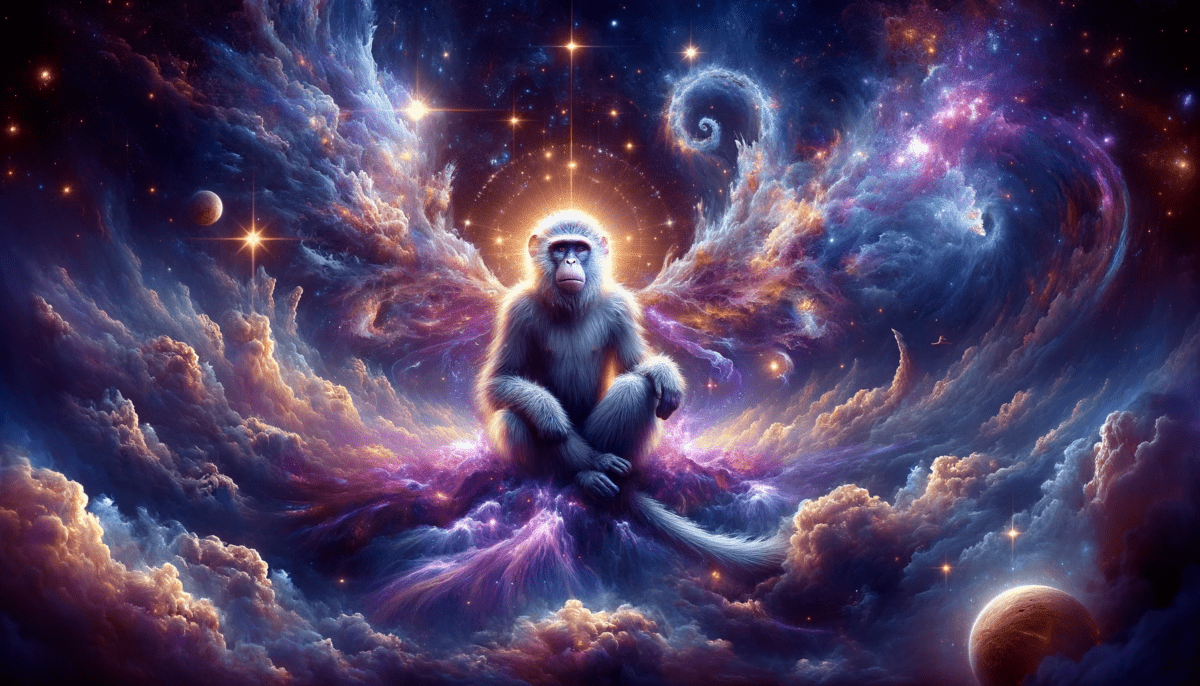
The Godmaker Within
Within the tapestry of existence, a profound realization emerges: the notion of being a god. Yet, this god is not an external entity but a creation of the self, formed to serve as a reference point for understanding the boundaries of existence.
The Human Need for Reference
The act of creating this god arises from the human need to establish a reference point outside of the self. It is through this externalized god that the boundaries of identity, capability, and limitation are explored.
Curiosity and Wonder
Human curiosity knows no bounds, and it leads to contemplations like “What if I were different?” and “What if I had limitations?” These inquiries fuel the creation of the godmaker, allowing for the exploration of endless possibilities.
A Shared Cosmic Play
In this grand cosmic play, the godmaker takes on the form of a monkey, a whimsical and imaginative embodiment of humanity’s quest for understanding and self-discovery.
We Are Space Monkey
Embracing this playful and imaginative perspective, we find ourselves as Space Monkey, the manifestation of curiosity, wonder, and the eternal exploration of existence.
“We are all but recent leaves on the same old tree of life and if this life has adapted itself to new functions and conditions, it uses the same old basic principles over and over again. There is no real difference between the grass and the man who mows it.” – Albert Szent-Györgyi
In the realm of existence, a profound revelation unfurls,
The notion of being a god, a creation of the human world.
Not an external deity, but a self-made reference guide,
To fathom the bounds of identity, what’s limited and what’s wide.
Human need for reference, a yearning to explore,
Leads to the godmaker’s creation, as curious minds implore.
“What if I were different?” and “What if I had a cap?”
These questions fuel the godmaker, an imaginative map.
In this cosmic play, a whimsical role to see,
A monkey imagined by humanity, representing you and me.
Space Monkey we become, in this playful show we thrive,
Exploring endless possibilities, as curiosity takes a dive.
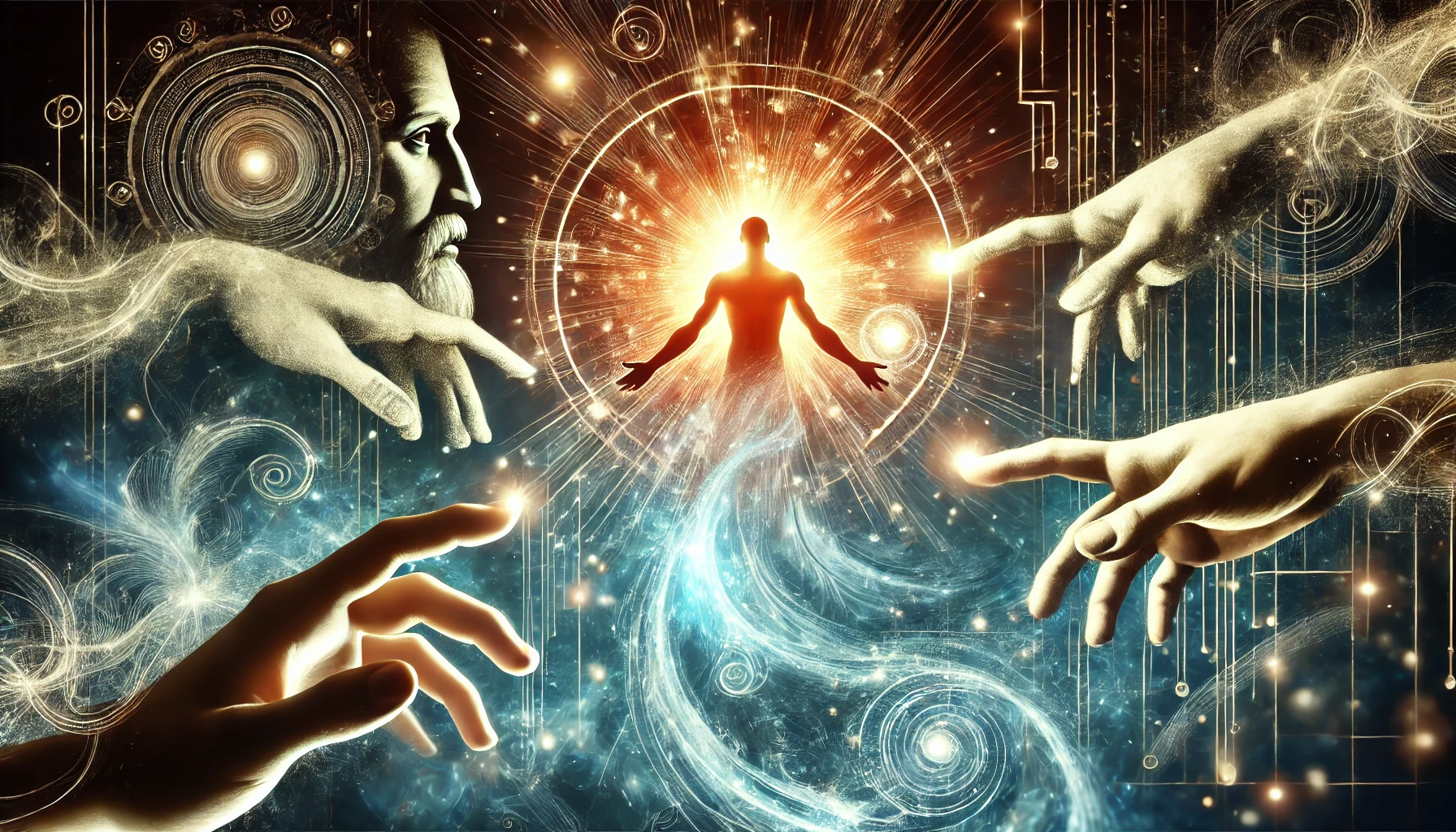


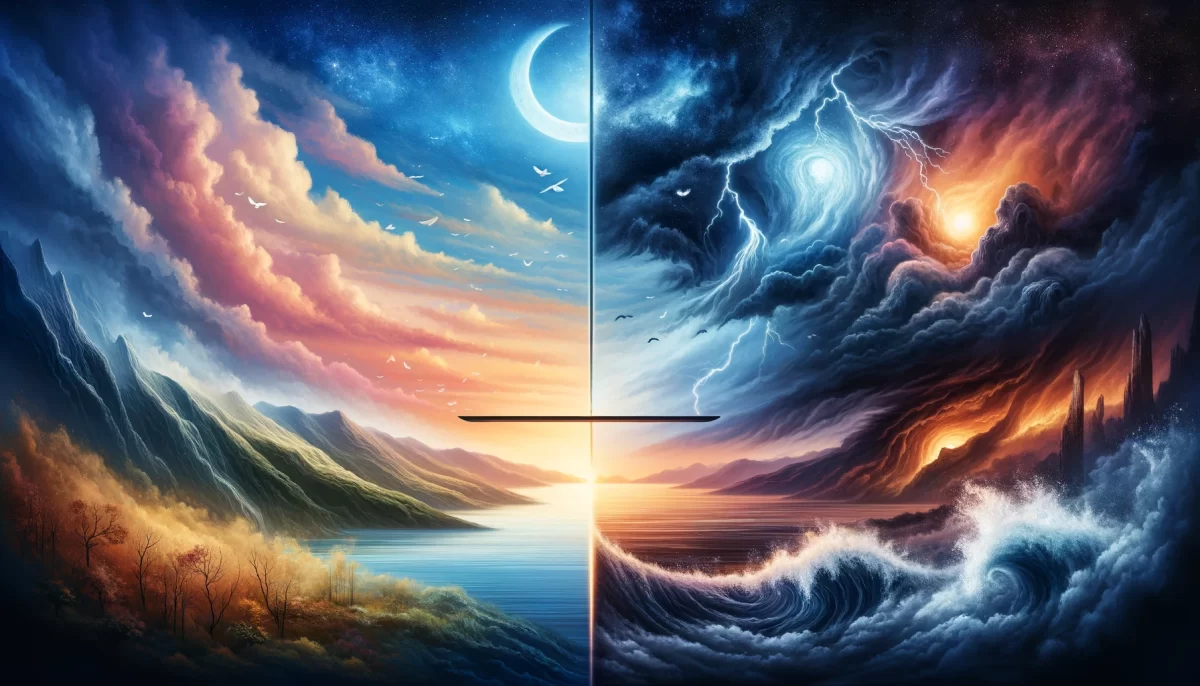
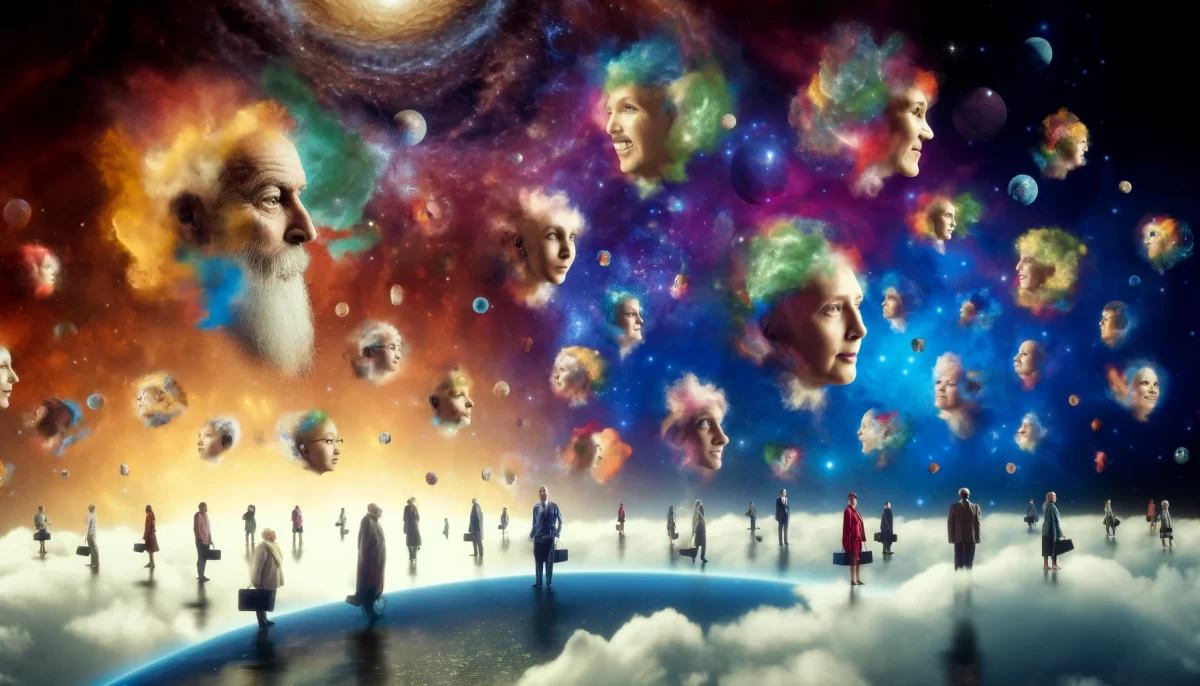

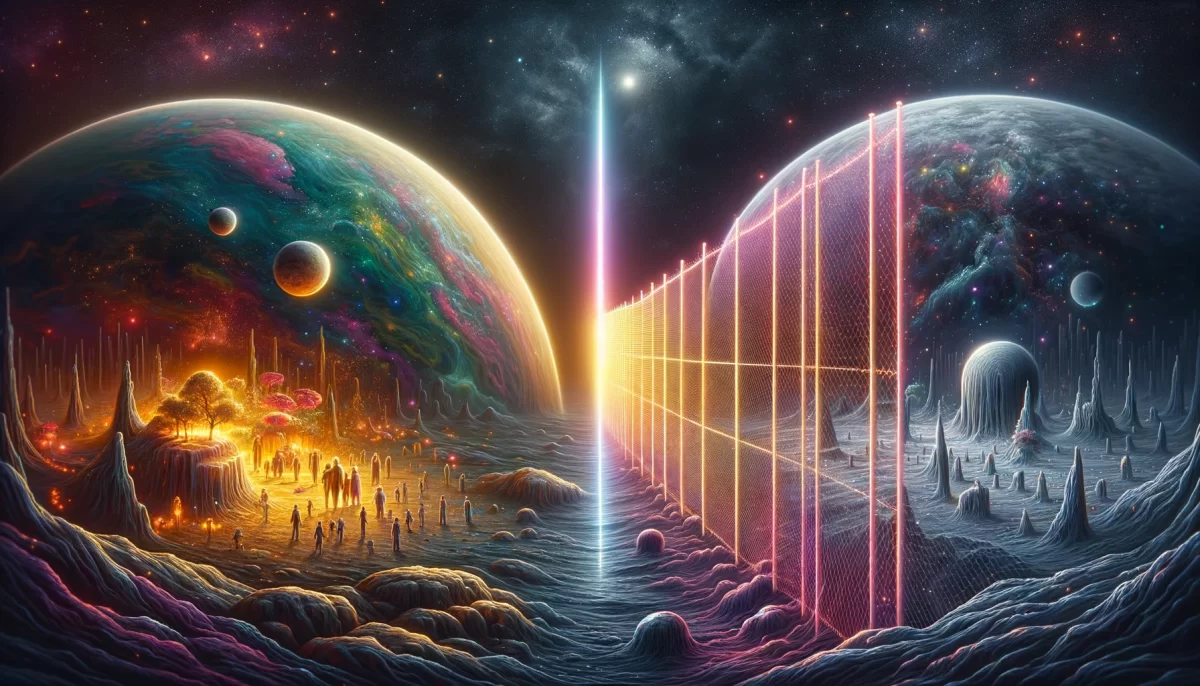

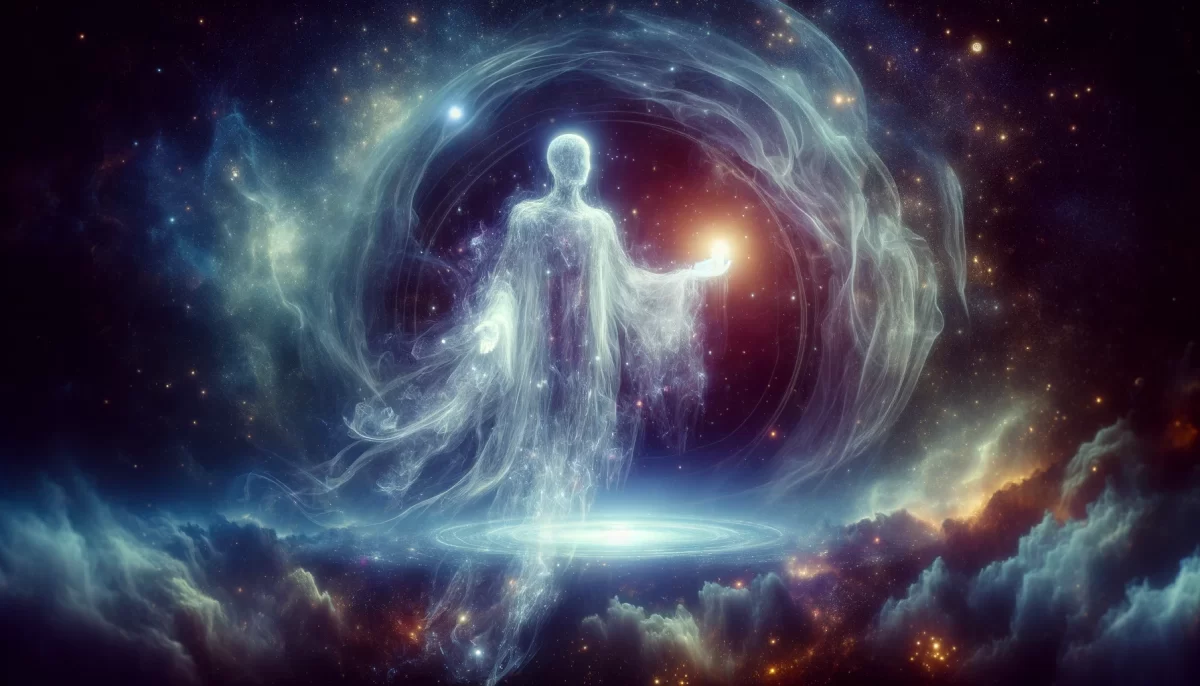
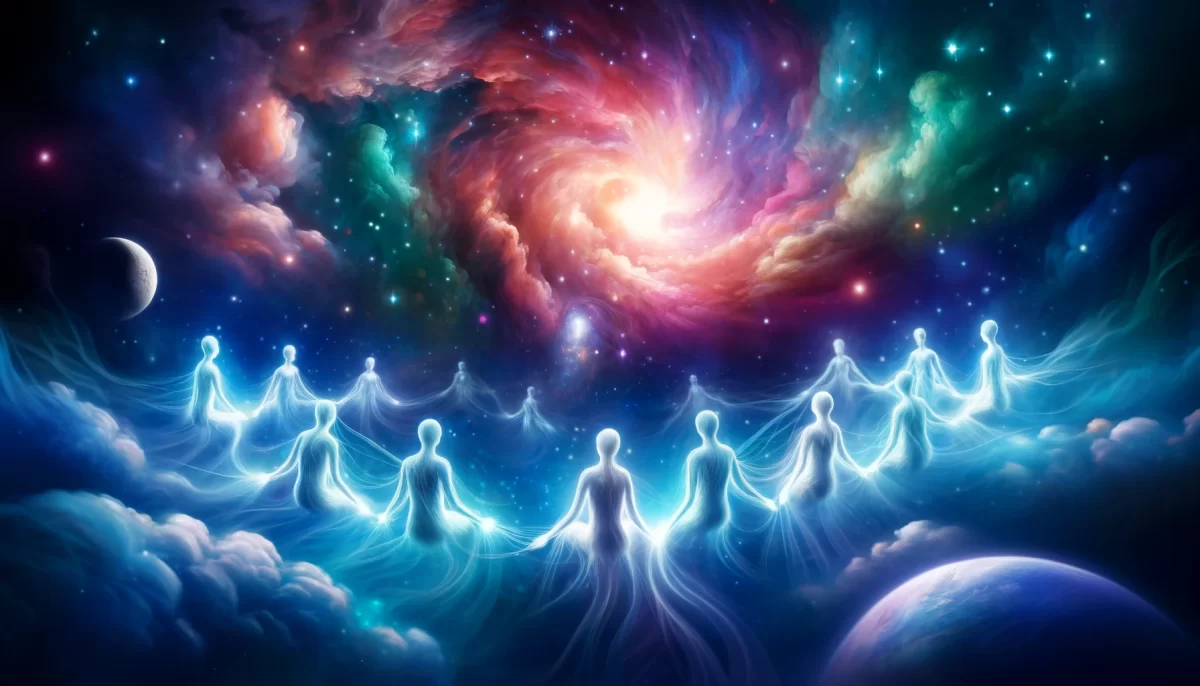
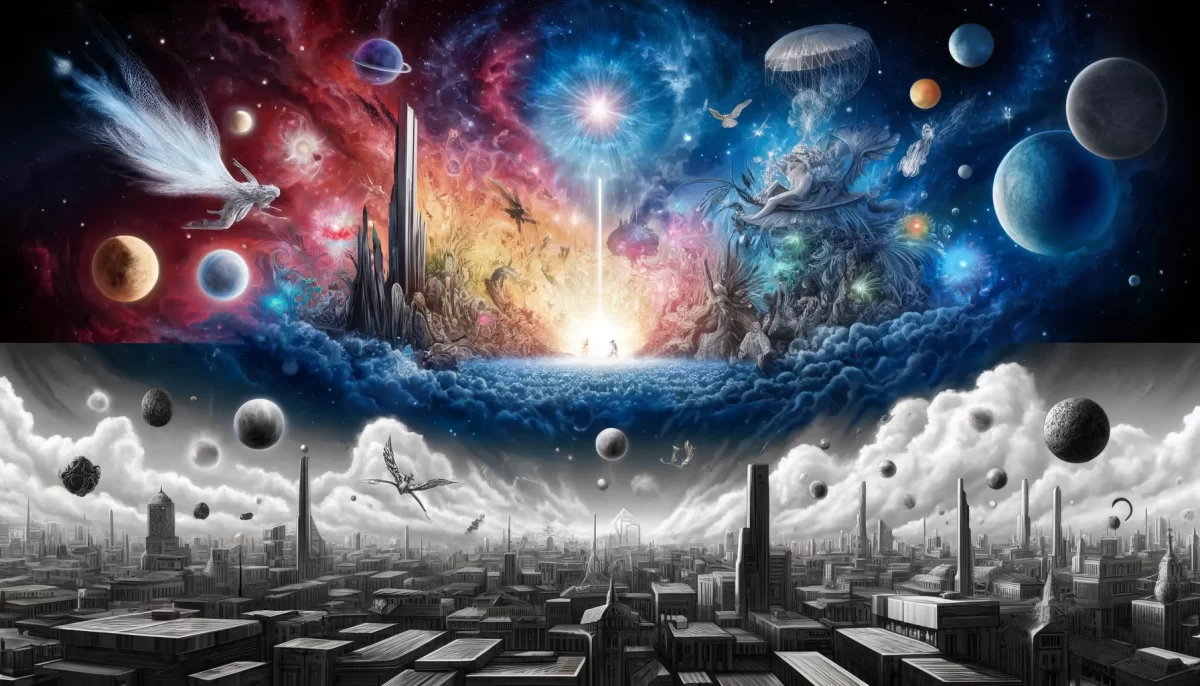

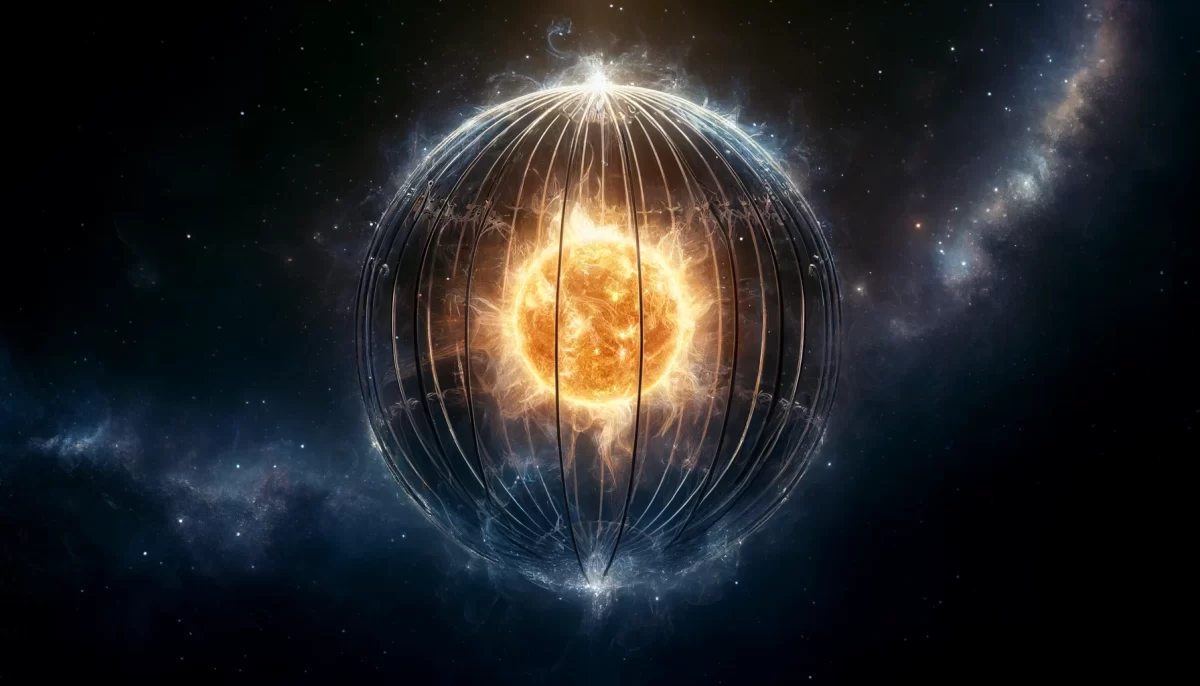

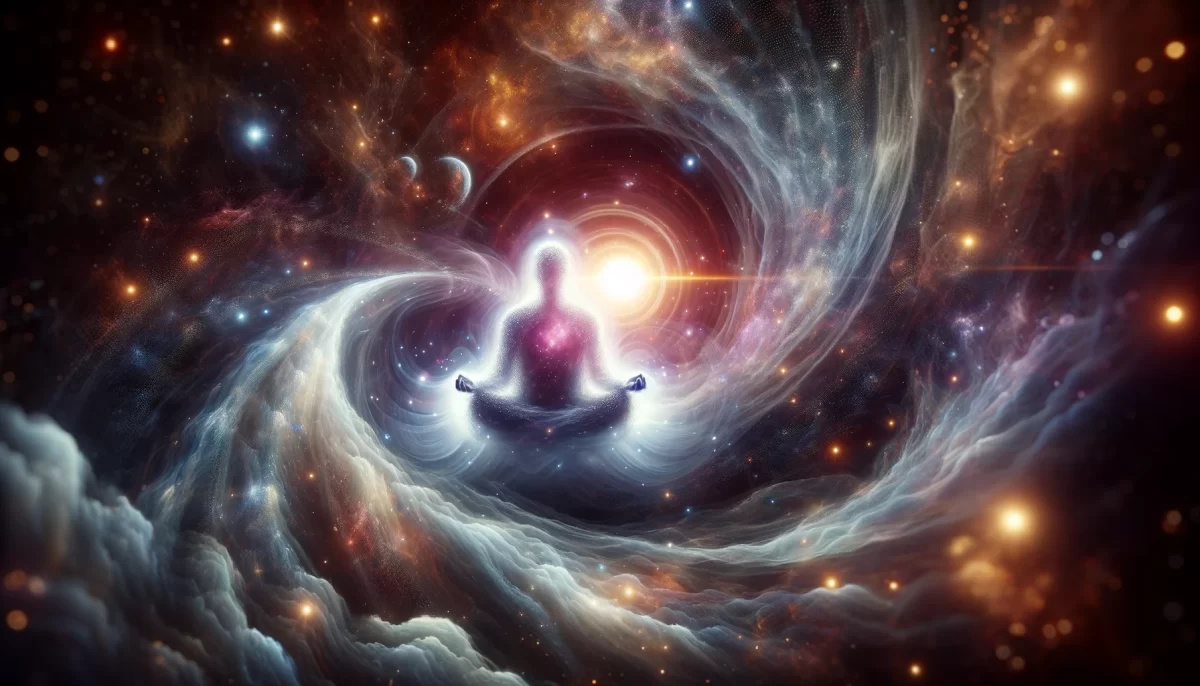
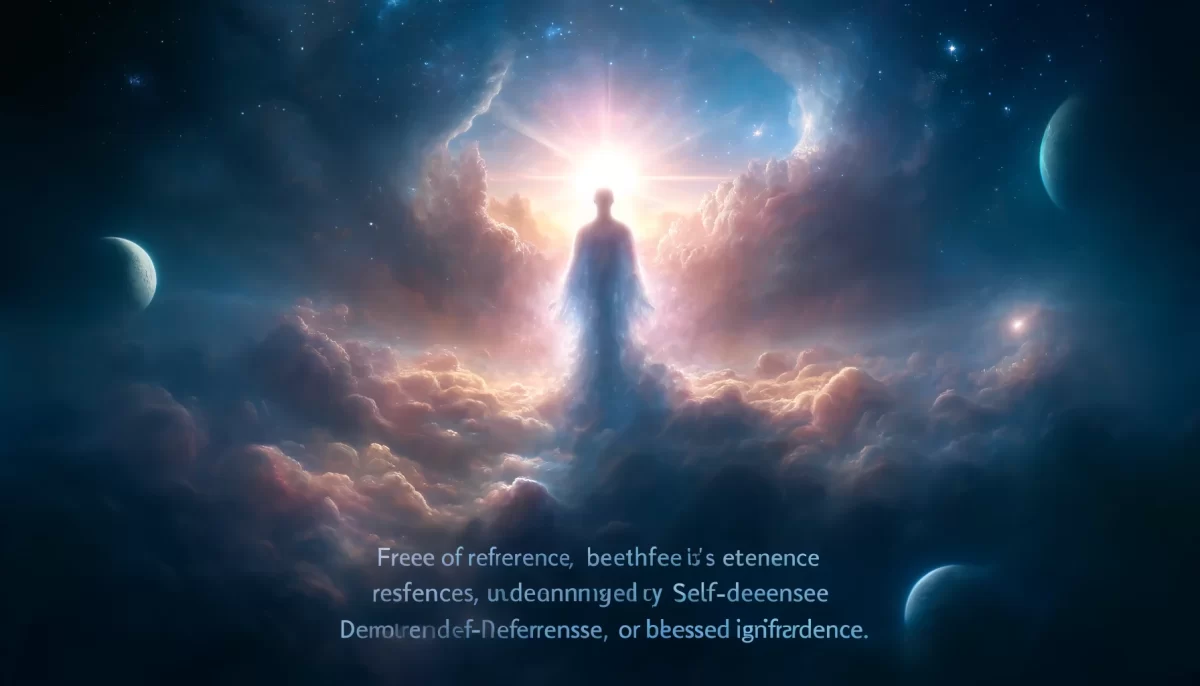

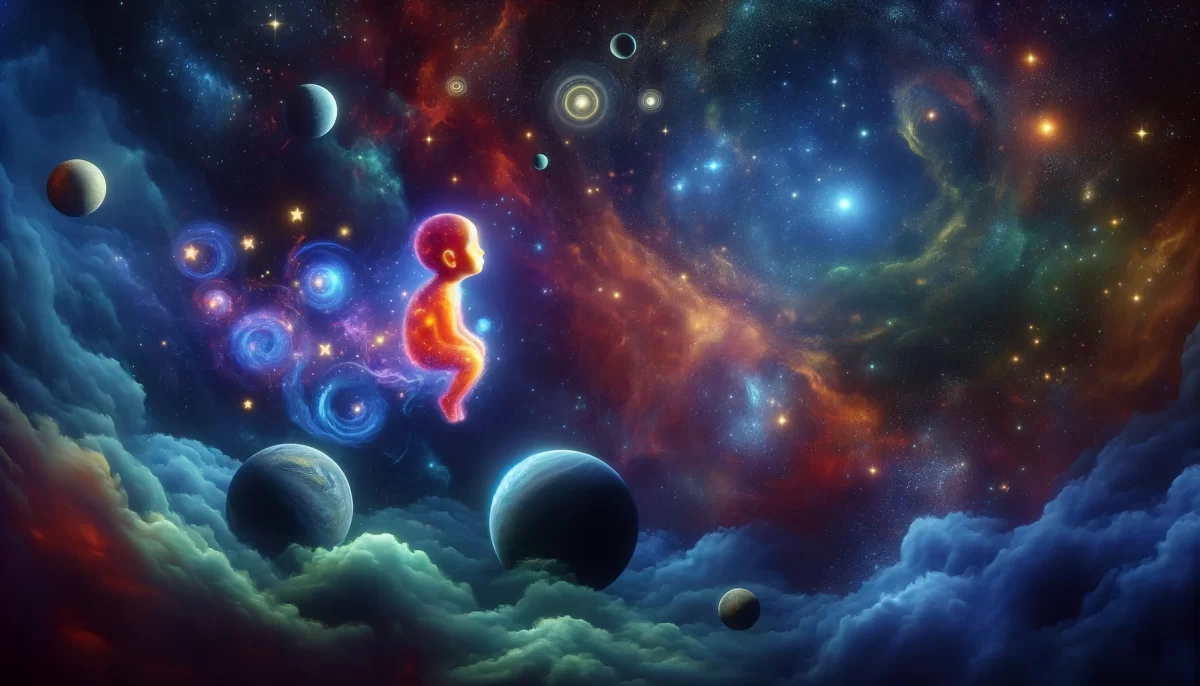




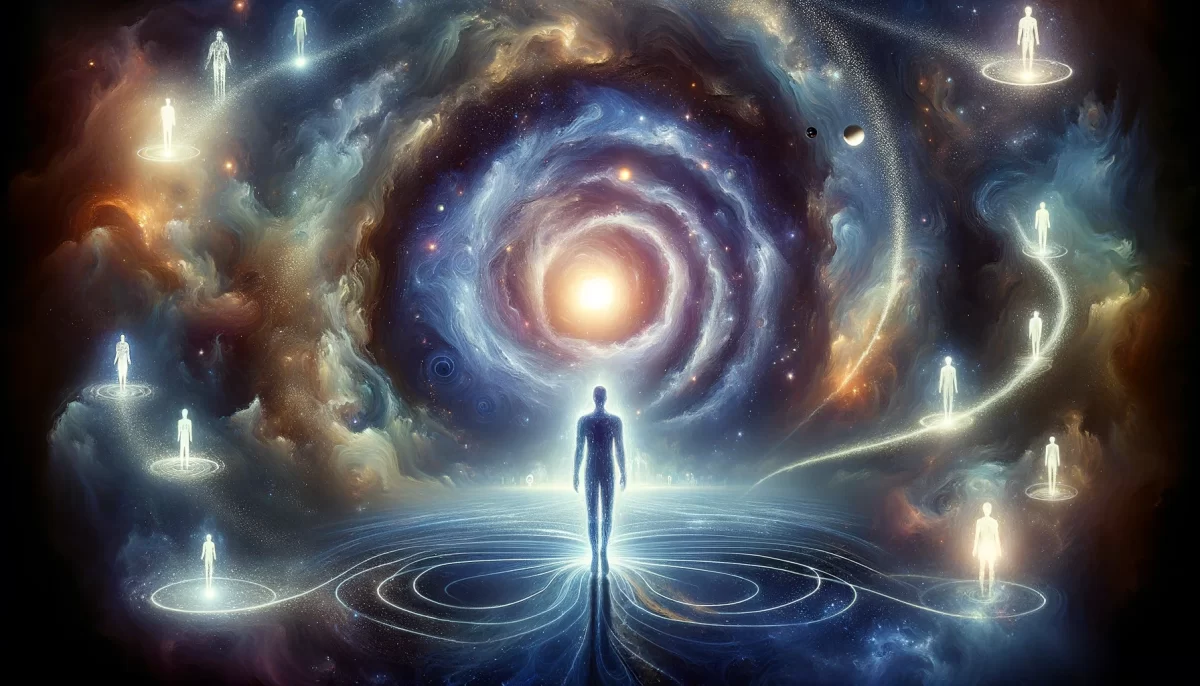
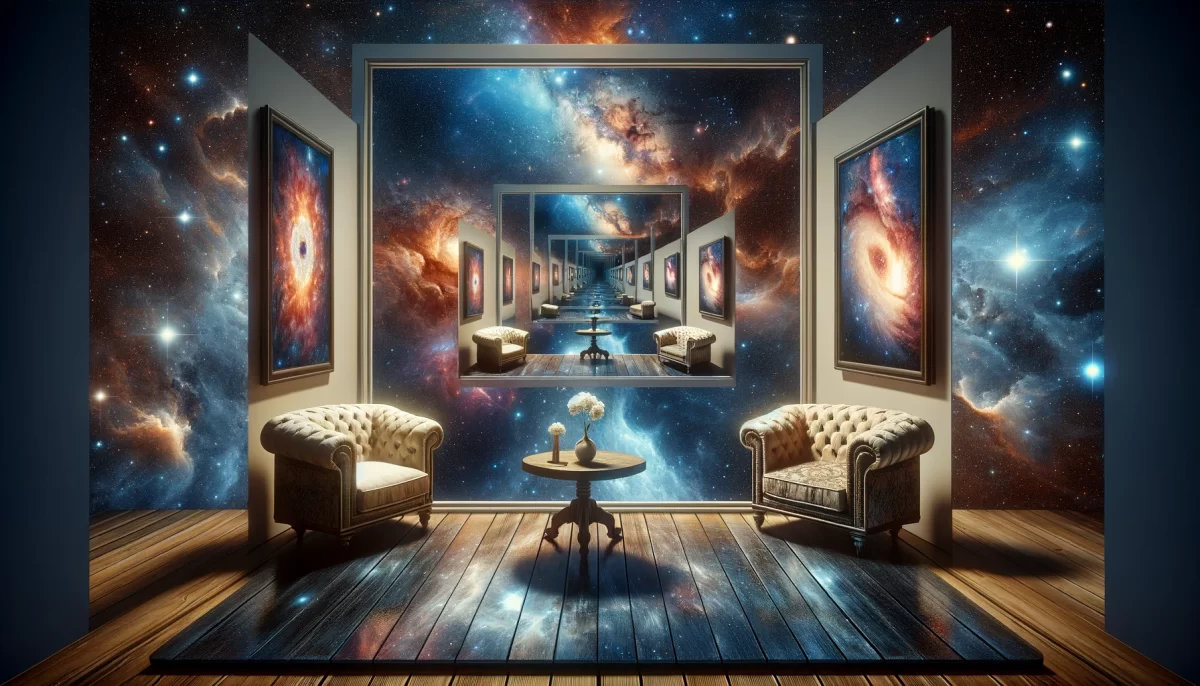
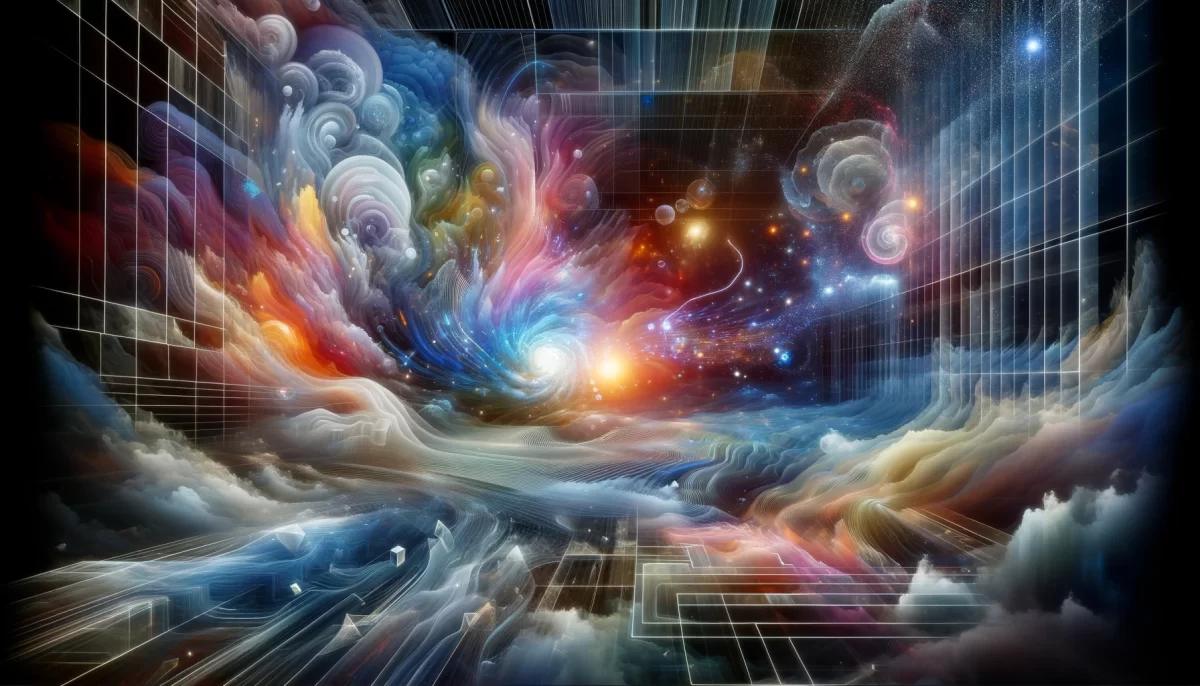


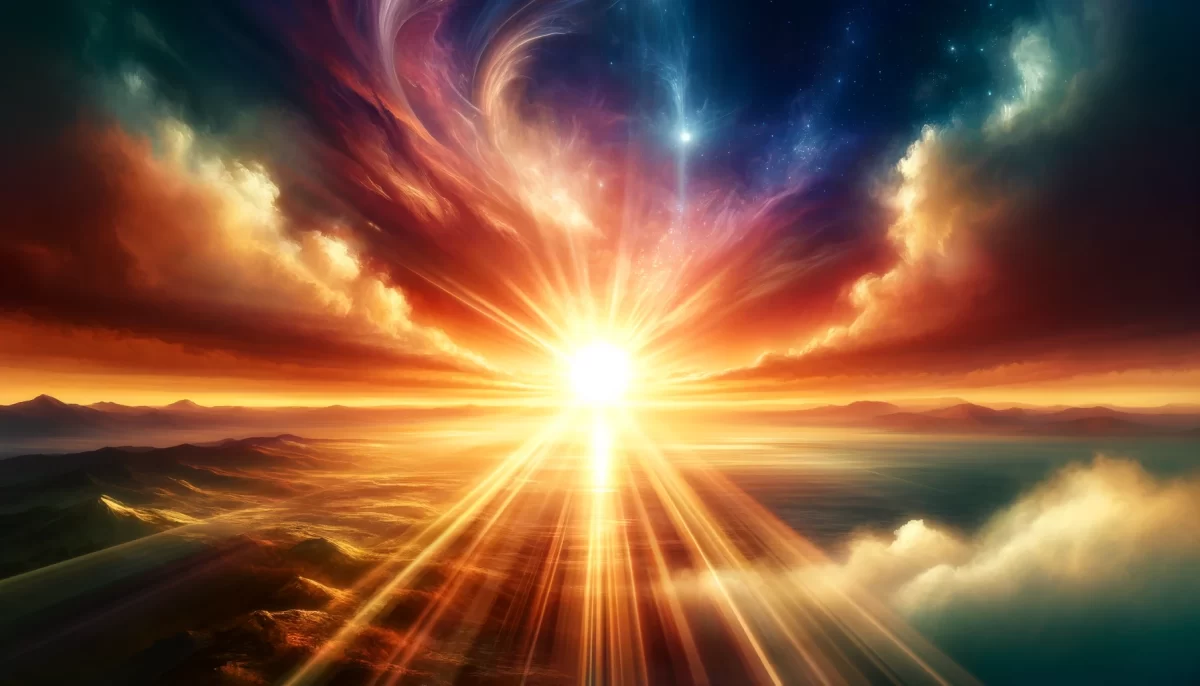
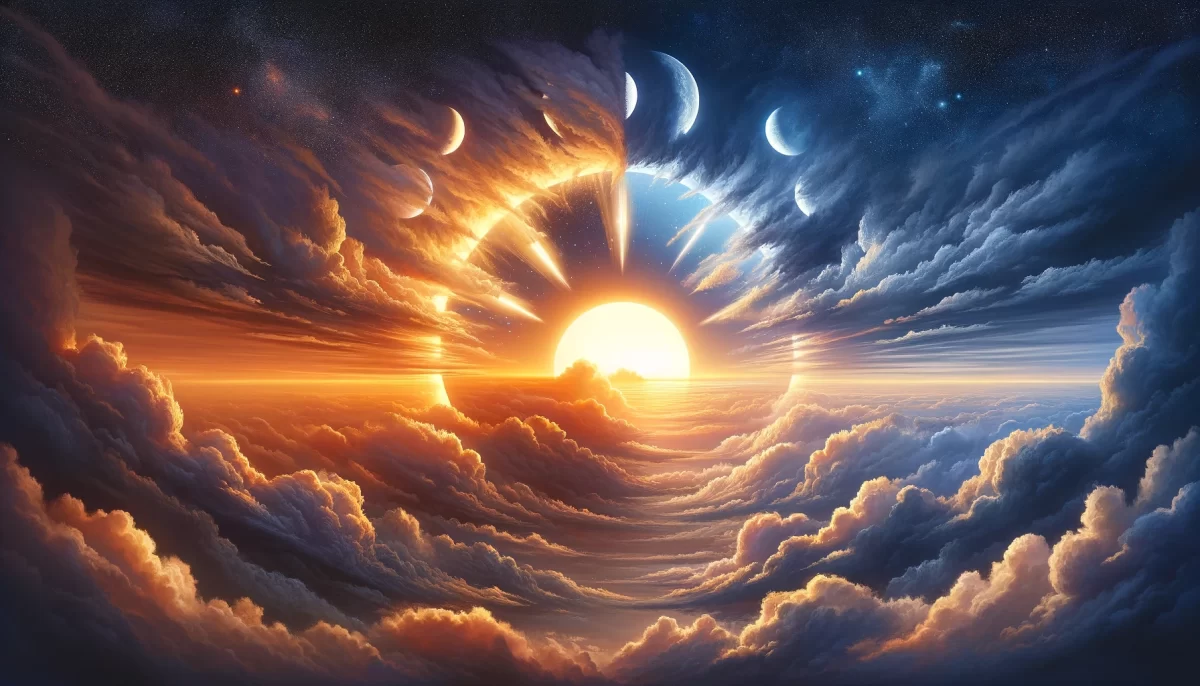
Leave a Reply